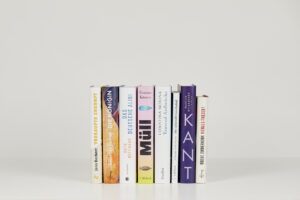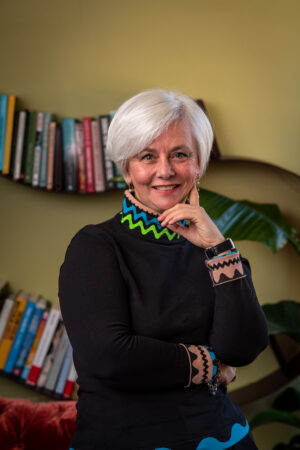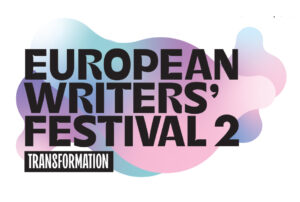Poco.lit is an online magazine in German and English that shines a light on postcolonial literature. In this article, poco.lit co-founder Anna von Rath discusses some recent New Book in German jury choices that stand out for her.
I have always been an avid reader. The German school system introduced me to the German literary canon – old white men like Goethe or Fontane and some younger white men like Uwe Timm. Back then, this seemed interesting but not fully satisfying. So, I started to look elsewhere to be represented, to be challenged and to be surprised. During my studies and my doctorate, I focused on postcolonial literatures, on lesser known literary voices and on different perspectives on the world. But coming full circle, I recently reacquainted myself with German literature and I had to realise that, when my tbr (book nerd term for reading list) is not imposed by the German school system, I can find everything I am looking for.
2019 I co-founded the bilingual online magazine poco.lit. for postcolonial literatures in the broadest sense. At poco.lit. we are invested in the ethico-political power and significance of literature. As a bilingual platform, we make relevant English texts accessible to German audiences, and at the same time we highlight the postcolonial literature that is developing in Germany and make it accessible to English speakers. In some ways, the latter connects our work with that of New Books in German and it is always a delight to explore the books the NBG jury chooses. In the selection for spring 2023 a couple of books stood out to me:

Austrian writer Gertraud Klemm’s novel Unicellular (Einzeller) vividly explores the dilemmas of today’s feminism. “Woman” is not a homogeneous category. Women position themselves differently and their feminist goals differ accordingly. This is something that I learned when engaging with postcolonial feminism and the critique of feminists of Colour that white feminists often ignore their needs and demands. Klemm, however, focuses on generational conflicts with her two protagonists Simone and Lilly, a publicly well-known second-wave feminist in her 50s and a woke 21-year-old who bases her decisions on a politically correct Instagram bubble. The novel doesn’t paint an attractive picture of the current state of feminism, but the critique of its fragmentation is eye-opening and to the point. The characters attempt to practice feminist solidarity, but it is certainly not an easy ideal to live by.
Carolina Schutti’s Ocean Breeze (Meeresbrise) is a beautifully written, slim, yet powerful novel about growing up as an outsider in a small village. The story is narrated by a young girl whose only friend is her younger sister and who believes in the tales her single mother tells. But even before the narrator fully notices, the reader will learn that underneath the beauty and the magic of these tales lies a less glamorous reality, one that society punishes: the girls have different fathers who may or may not be dead; the mother is on welfare and supplements their income through phone sex; she often abandons the girls, either locking them in the apartment or leaving them to roam freely in the forest. The tone of the novel is often playful and naïve, but the book still invites readers to think about class, norms, mother-daughter relationships and many other serious social issues. Ocean Breeze (Meeresbrise) stayed with me long after I finished reading it, because of the ambivalence and the refusal to blame that Schutti maintains throughout.
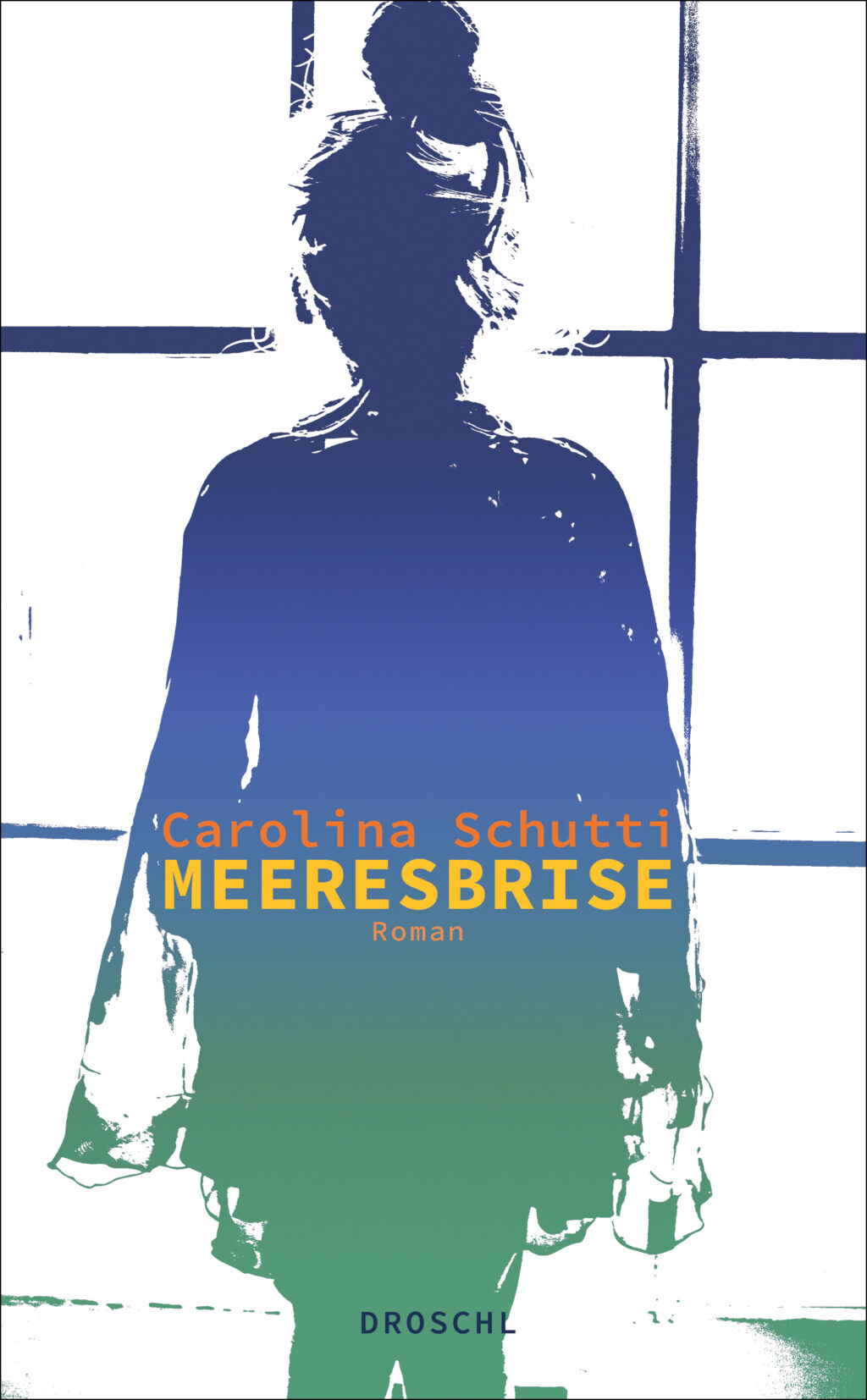

I probably wouldn’t have picked up Ulrike Draesner’s Penetrating Silence(Die Verwandelten), if it hadn’t been selected by the NBG jury. And I’m glad I did, because what a book! Sensitive, beautifully sad and absolutely haunting. This multi-generational novel centres on the Nazi Lebensborn programme, which I hadn’t heard about before, but which was an association that worked towards increasing the number of – in Nazi terms “racially pure” – children. Adele, a cook from Breslau, is measured and racially classified before she is admitted to Lebensborn. Just before World War II, she is forced to give her child away. Alissa becomes Gerhild and is raised by a rich Nazi couple. This traumatic experience changes Alissa forever and strongly influences her relationship with her own daughter Kinga. In over 400 pages we learn about these women and some other female relatives. In this carefully crafted and highly lyrical novel Draesner gives them their voices back. I particularly liked the fragmentary use of (various) language(s), the gender inclusive expressions and the sensitivity of the various narrative voices for experiences that seem unspeakable.
It is striking that the NBG selection highlights lots of books by women, many of which present an explicit or implicit feminist perspective. This is important since women authors – Nicole Seifert explains in her recent book Frauenliteratur – still don’t get the attention they deserve and funding measures can help to change that. In the German speaking countries, the situation is even more dire for BIPOC authors. Looking through the publishing houses’ spring programmes, I could almost count them on two hands. This shows in the NBG selection for spring 2023. Luckily, you can still read books that have been published earlier. When you click on “explore books” on the NBG website, you can find some of my personal highlights of the last years:
Fatma Aydemir’s novel Djinns (Dschinns) was one of my favourite books of 2022. The complexity of migration, family, relationships, mental health and life choices lie at the centre of the novel. Djinns lives from its excellently developed characters, all members of the Turkish-Kurdish Yilmaz family, who emigrated to Germany when Hüseyin, the father, was recruited as a so-called “guest worker”. All of the family members have their own voice and worldview.

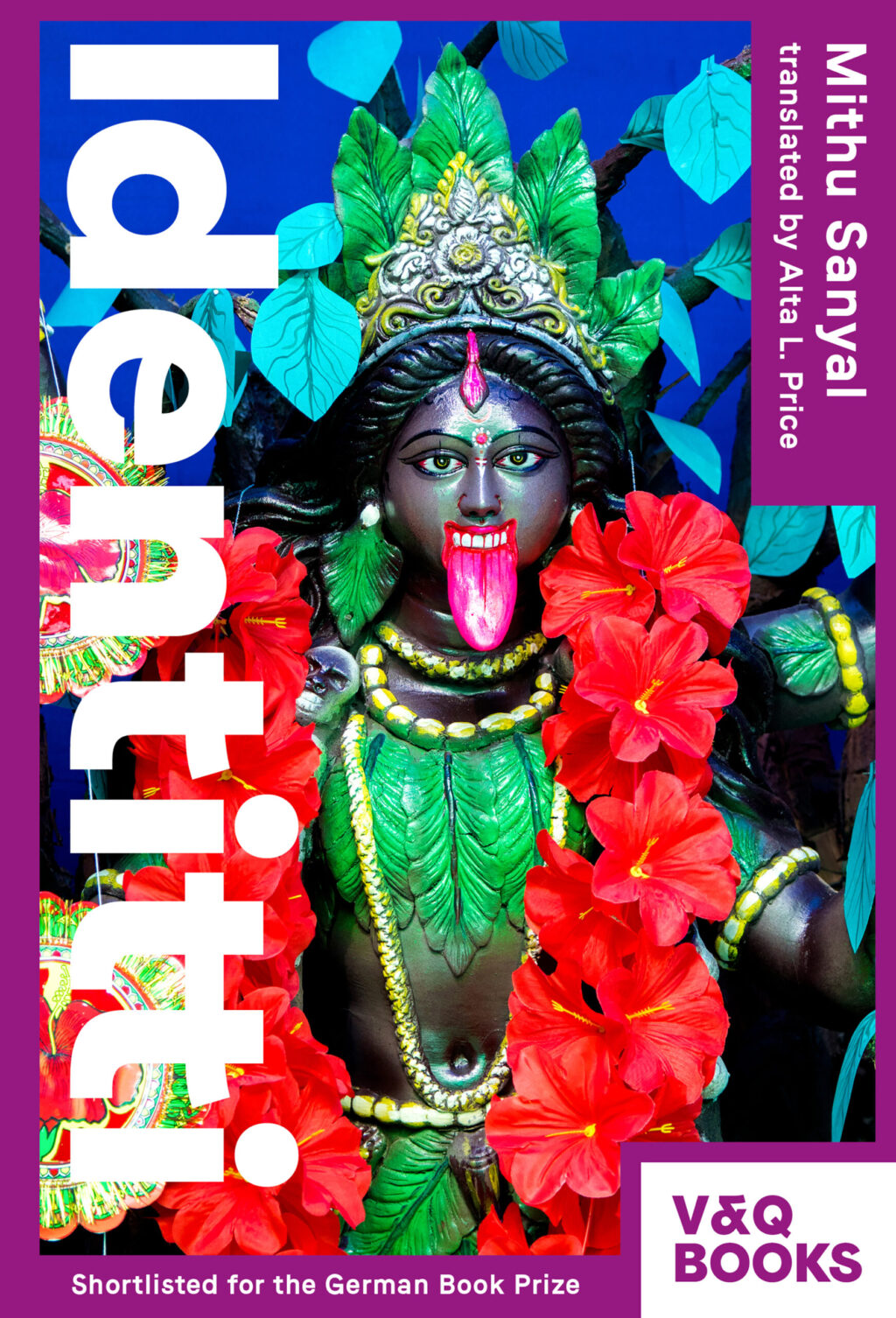
A 2021 favourite of mine was Mithu Sanyal’s Identitti (translated by Alta L. Price), which is quite unique for the German context. Discussions about identity have long been conducted on Twitter, and the number of corresponding nonfiction books has grown significantly in Germany in recent years. But Sanyal has created a fictional story that takes a multi-voiced, smart, and critical approach to the highly complex topic of racial passing. Sanyal herself says in the afterword, “identity struggles are struggles over fictions in reality,” and so she weaves the two together in her book.
NBG doesn’t only select novels. The selection also includes nonfiction books that cannot be recommended enough. Emilia Roig‘s Why We Matter: The End of Oppression can be read as a wonderfully accessible introduction to the concept of intersectionality. Moving at a rapid pace, the book takes a look at the multiple facets of oppression and how they overlap in nearly all areas of life.
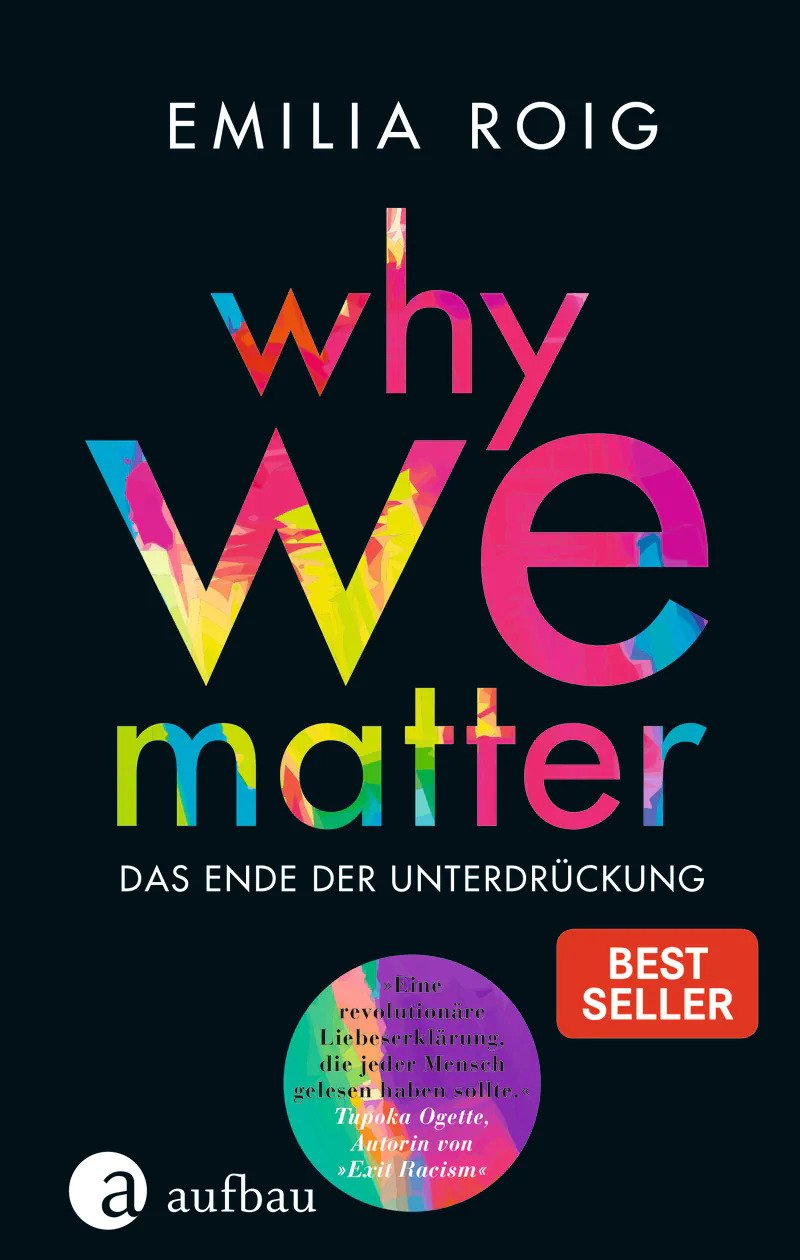
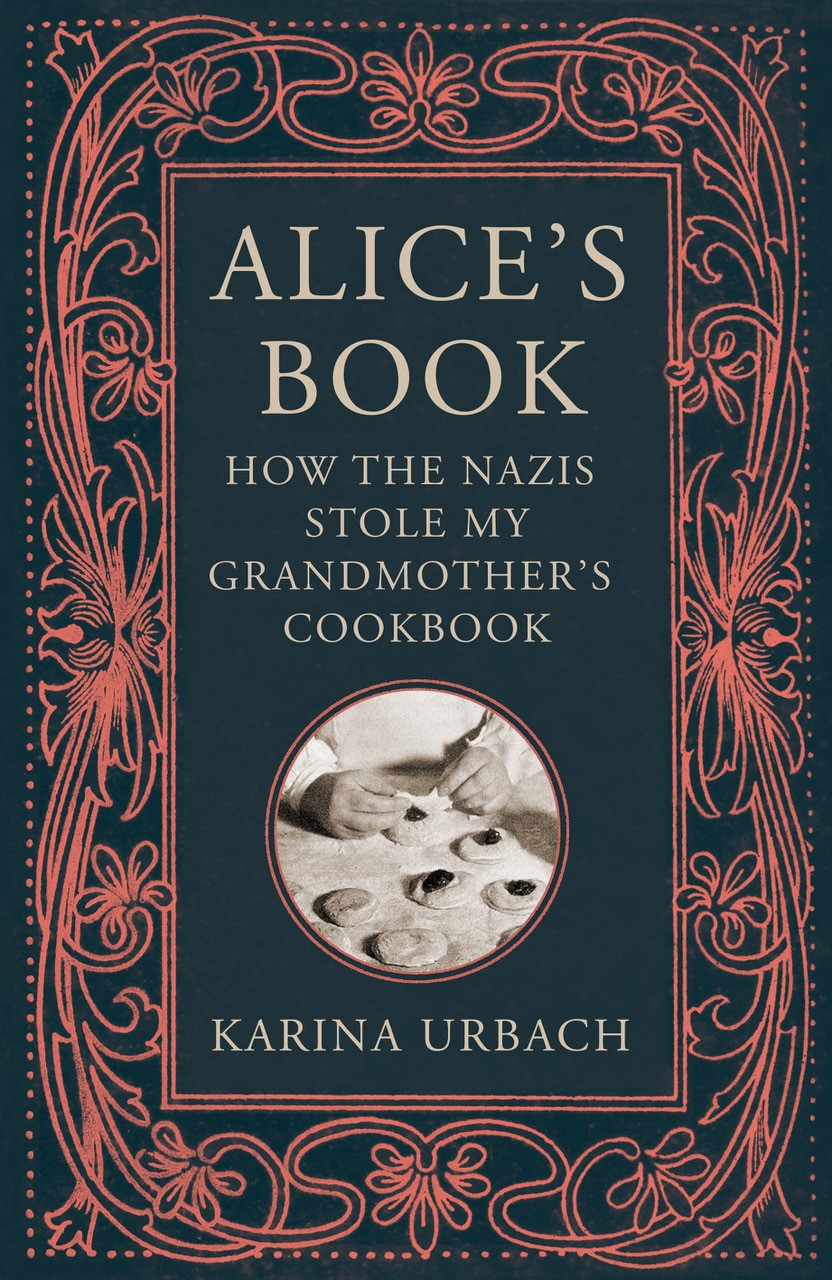
Lately, I’ve been getting more into food writing – literature that makes food its subject and goes far beyond recipes or cooking techniques. That’s why I picked up Karina Urbach’s How the Nazi’s stole my grandmothers cookbook (translated by Jamie Bulloch). It wasn’t so much about food, but revealed yet another facet of the Nazi regime that I hadn’t known before. Karina Urbach pieces together the story of her grandmother Alice Urbach, a Jewish chef who lived in Vienna in the early 20th Century. Alice Urbach’s bestselling cookbook was reissued under a male Aryan pseudonym and Jewish heritage recipes were replaced. It took until 2021 for the rights to be returned posthumously. This was not a singular case, it happened to many Jewish authors. Some publishing houses have already publicly apologised, others still need to acknowledge their responsibility.
German literature is creative and politically relevant. I might pick up 22 Bahnen (22 Lengths) by Caroline Wahl next and am already looking forward to NBG’s autumn selection.
About the author: Anna von Rath is a diversity trainer, translator and editor of poco.lit




